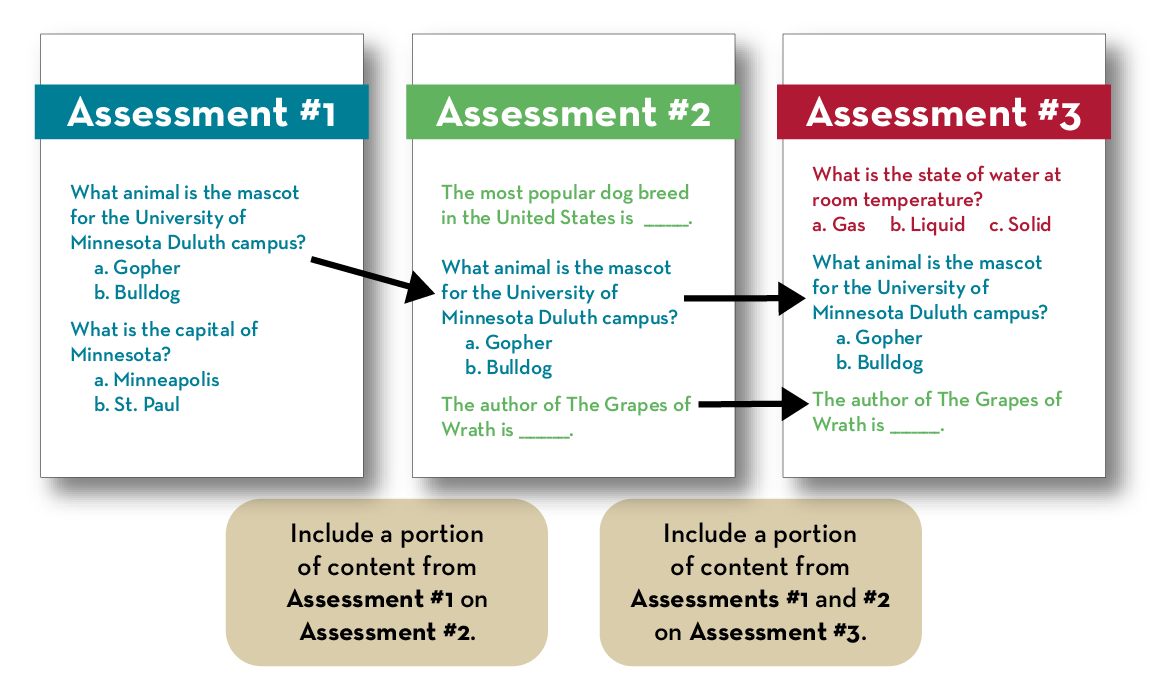“Repeated retrieval enhances long-term retention”.
- Peter Brown, Make it Stick, 2015
Cumulative assessment refers to the practice of revisiting material from previous assessments on later assessments.

Cumulative assessments are recommended because they:
- Ensure students revisit earlier material when studying for upcoming assessments.
- Have been shown to improve student performance (Lawrence, 2013, Khanna, 2013).
- Take advantage of the testing effect – the demonstration that repeated testing results in better learning than repeated studying.
- Are a form of retrieval practice – a learning approach that emphasizes recalling rather than encoding information.
Video
Peter Brown, author of Make It Stick, discusses why retrieval practice strengthens student learning.
Despite evidence demonstrating that cumulative assessments improve learning, many students have negative reactions to the idea of cumulative assessments. A common student complaint is that cumulative exams require more study time because students must review older material they have already been tested on (ironically, this is one of the arguments instructors have for using cumulative assessments).
Suggestions for helping students become more accepting of the use of cumulative assessments in your course:
- Tell students why you are using cumulative assessments. Indicate that the learning aims of your course require that they retain and build upon previously acquired knowledge and skills.
- Inform students that research shows that the use of cumulative assessments improves student learning.
- Be transparent. Communicate to students which previous knowledge and skills will be included in upcoming assessments.